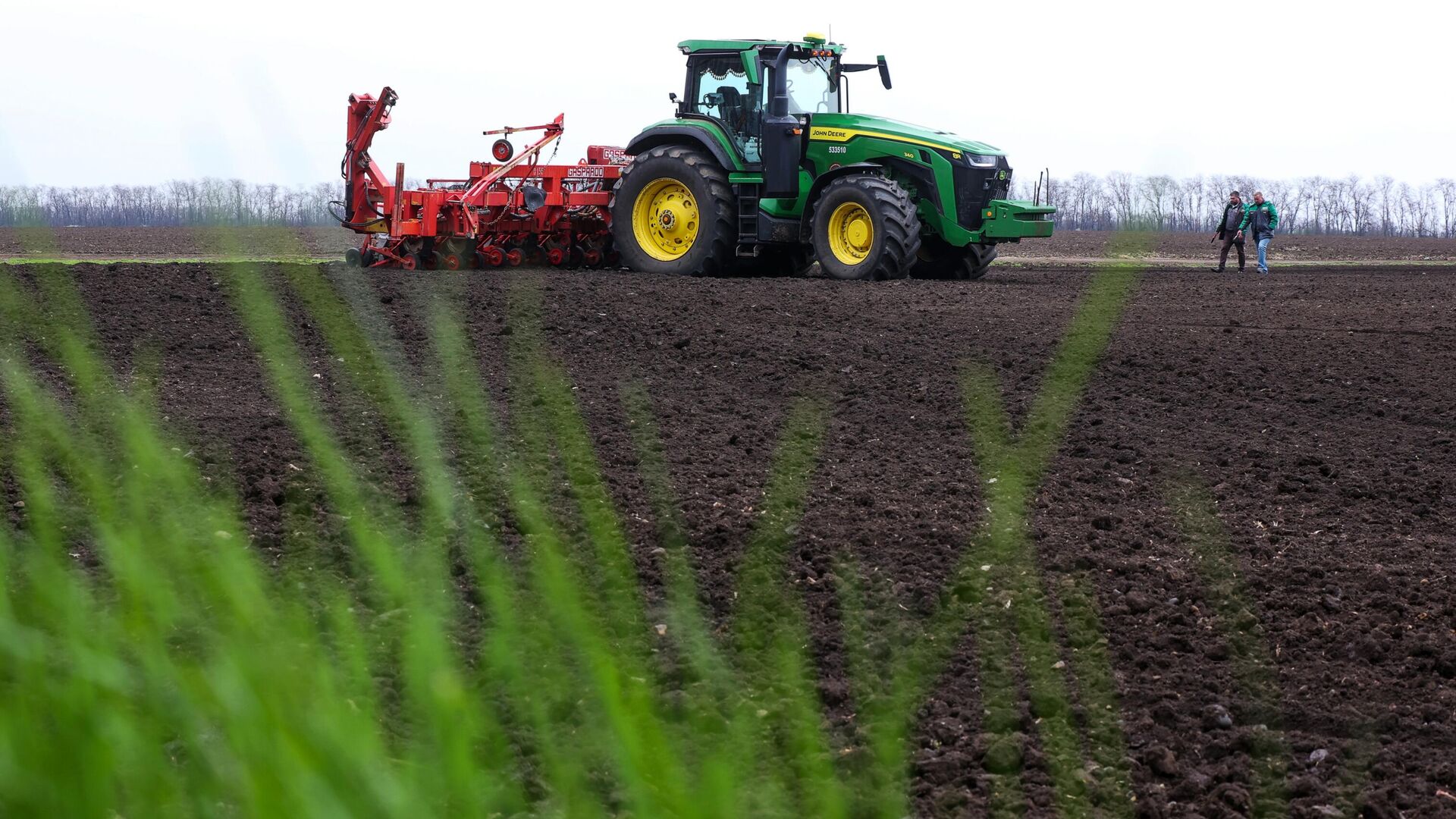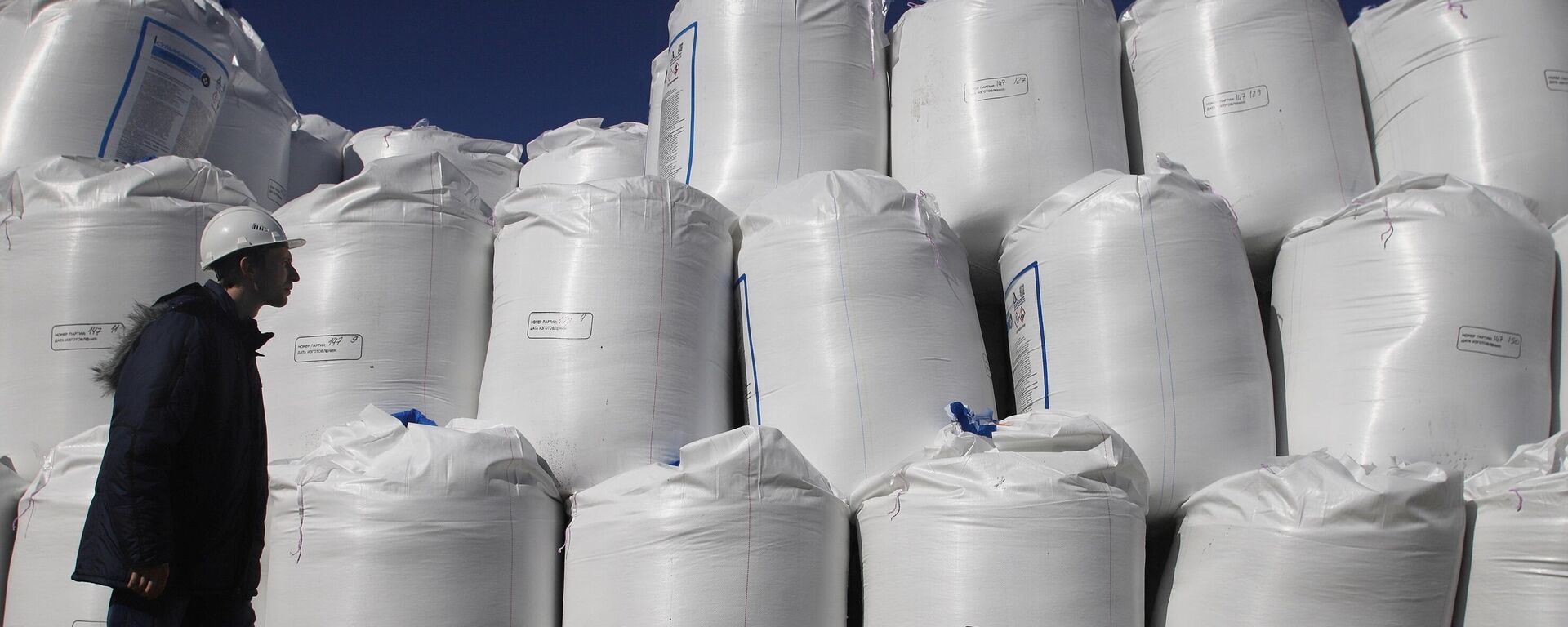https://en.sputniknews.africa/20230414/russian-scientists-find-way-to-improve-soil-fertility-1058600201.html
Russian Scientists Uncover Strategy to Enhance Soil Fertility
Russian Scientists Uncover Strategy to Enhance Soil Fertility
Sputnik Africa
The findings will help to develop recommendations on the use of technology for thermal processing of biomass into biochar and methods for introducing the resulting ameliorants.
2023-04-14T13:02+0200
2023-04-14T13:02+0200
2023-04-14T14:34+0200
russia
science
research
agriculture
crops
https://cdn1.img.sputniknews.africa/img/07e7/04/0e/1058599103_0:0:3027:1703_1920x0_80_0_0_663fe09933a6dec35713921c972bd3c3.jpg
Scientists from Russia’s Tyumen State University in Western Siberia suggest using biochar obtained from organic waste to enhance soil properties and boost its fertility, according to a new paper published in the journal Biomass Conversion and Biorefinery.According to the researchers, this know-how will also ensure the environmental cleanliness of agricultural enterprises and partially replace mineral fertilizers.The Siberian university researchers obtained biochar from organic waste, which was used as additives that increase the yield of grain crops. According to their data, the introduction of biochars obtained from cow manure and wheat straw into the soil led to an increase in the mass of soft spring wheat by 14–23%.As a result of thermal processing in an oxygen-free environment, organic waste such as sawdust, straw, and pine nutshells are converted into a highly porous carbon material. When it is added to the soil, its structure and water-air regime improve. In addition, the composition of biochar includes a wide range of microelements, unique for each type of raw material used, which has a positive effect on soil fertility.Emerging landfills and waste dumps pose an environmental, sanitary and epidemiological hazard to nearby areas. According to Russia’s environmental safety strategy, it is assumed that by 2025, the volume of production and consumption waste will exceed 30 billion tonnes.According to the scientists, however, resource-efficient thermal processing of this kind of waste will make it possible to not only obtain biochar, but also solve the problem of partial utilization of greenhouse gases emitted into the atmosphere when stored in natural landfills.This research was conducted under the Russian Federation's "Ecosystems of the Future" strategic project.
https://en.sputniknews.africa/20230121/1058601753.html
russia
Sputnik Africa
feedback@sputniknews.com
+74956456601
MIA „Rossiya Segodnya“
2023
News
en_EN
Sputnik Africa
feedback@sputniknews.com
+74956456601
MIA „Rossiya Segodnya“
Sputnik Africa
feedback@sputniknews.com
+74956456601
MIA „Rossiya Segodnya“
russian scientists, tyumen state university, biochar in agriculture, what is biochar, soil fertility, agriculture in africa
russian scientists, tyumen state university, biochar in agriculture, what is biochar, soil fertility, agriculture in africa
Russian Scientists Uncover Strategy to Enhance Soil Fertility
13:02 14.04.2023 (Updated: 14:34 14.04.2023) Kirill Kurevlev
Managing Editor
At present, scientists are conducting experiments to assess the impact of the combined use of biochar and other mineral fertilizers on wheat yields. The findings will help develop recommendations on the use of this technology for the thermal processing of biomass into biochar and methods for introducing the resulting ameliorants.
Scientists from Russia’s Tyumen State University in Western Siberia suggest using biochar obtained from organic waste to enhance soil properties and boost its fertility, according to a new paper published in the journal
Biomass Conversion and Biorefinery.According to the researchers, this know-how will also ensure the environmental cleanliness of agricultural enterprises and partially replace mineral fertilizers.
"The amendment of biochars from such wastes as wheat straw and cow manure results in improving a number of plant morphometric parameters (plant height, number of leaves, root length) and reducing soil acidity," the study revealed.
The Siberian university researchers obtained biochar from organic waste, which was used as additives that increase the yield of grain crops. According to their data, the introduction of biochars obtained from cow manure and wheat straw into the soil led to an increase in the mass of soft spring wheat by 14–23%.
"Since the introduction of biochar-based ameliorants into the soil has a positive effect on its fertility, it is possible to reduce the amount of accumulated organic waste and at the same time increase crop yields," said Ivan Shanenkov, who heads the laboratory of resource-efficient technologies for the thermal processing of biomass at the X-BIO Institute of Tyumen State University, who participated in the study.
As a result of thermal processing in an oxygen-free environment, organic waste such as sawdust, straw, and pine nutshells are converted into a highly porous carbon material. When it is added to the soil, its structure and water-air regime improve. In addition, the composition of biochar includes a wide range of microelements, unique for each type of raw material used, which has a positive effect on soil fertility.
“In our country, biochar is mainly wood and is used mainly as a fuel resource. We suggest considering it either as an independent fertilizer for agricultural land, or as part of compositions with other types of soil ameliorants,” explained Konstantin Ponomarev, a researcher at the laboratory.
Emerging landfills and waste dumps pose an environmental, sanitary and epidemiological hazard to nearby areas. According to Russia’s environmental safety strategy, it is assumed that by 2025, the volume of production and consumption waste will exceed 30 billion tonnes.
According to the scientists, however, resource-efficient thermal processing of this kind of waste will make it possible to not only obtain biochar, but also solve the problem of partial utilization of greenhouse gases emitted into the atmosphere when stored in natural landfills.
This research was conducted under the Russian Federation's "Ecosystems of the Future" strategic project.


